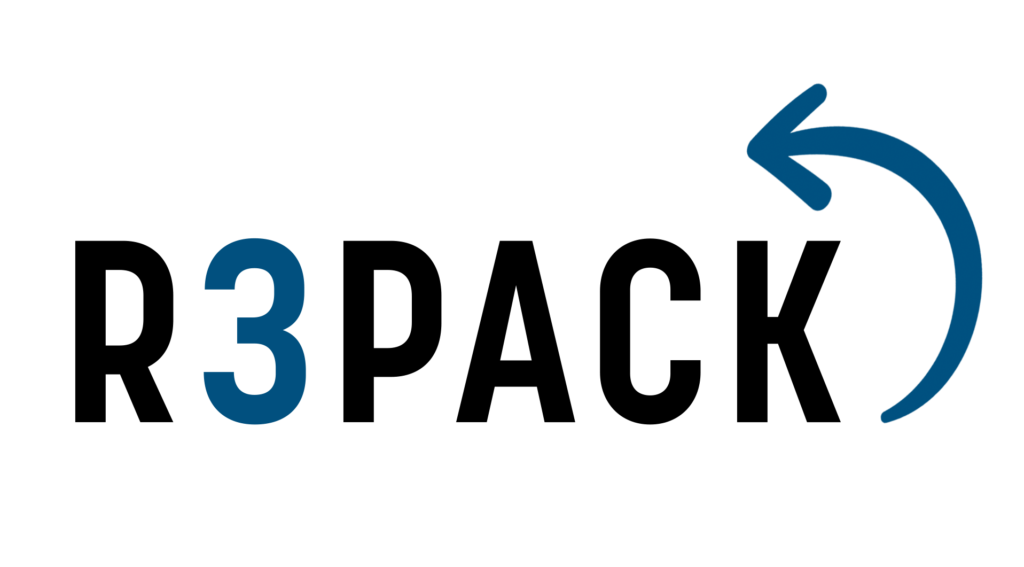
30th Nobember 2022
Today, the European Commission has published its long-awaited proposal for a review of the Packaging and Packaging Waste Directive. The revision follows up on the European Green Deal, where the Commission commits to ensure that plastic packaging is reusable or recyclable in an economically viable manner by 2030.
The proposal will contribute to advance the green transition – it is a step forward in reducing packaging waste generation by driving design for reuse and recyclability of packaging. It is also a step forward in ensuring the well-functioning of the market for secondary raw materials and supporting compliance with recycling targets for packaging.
The proposed rules amending the essential requirement to improve design for reuse and promote high quality recycling could, however, benefit from real-life cases and studies on reuse schemes and substitution solutions.
R3PACK project aims at developing sustainable fiber-based and plastic-free technologies and fostering reuse schemes. R3PACK outcomes will be a relevant tool for decision-makers when assessing the European Commission’s proposal and its efficiency and effectiveness to tackle the negative impacts on environment and health from packaging and packaging waste.
At this stage of the project, R3PACK Consortium would like to stress:
- Elimination, substitution and expansion of consumer reuse options is the optimum solution to achieve an immediate reduction of plastic pollution. It allows the biggest reduction in plastic pollution and provides the highest mitigation opportunity in greenhouse gas (GHG) emissions compared to existing alternative system interventions (such as mechanical recycling or plastic chemical conversion).
- EU legislation needs to be updated to promote alternative sustainable food packaging and prevent harmful chemicals to get into contact with food.
- The uptake of reuse schemes is key in reducing packaging waste at the source. EU legislation needs to support the uptake of reuse schemes that prevent the need to dispose. R3PACK outcomes propose the right packaging for the right products with the right washing and return logistics strategies adapted to local context, as well as a model for collaboration between players to implement reuse.
- Fibre-based packaging can substitute/should be promoted to substitute complex multilayer plastic packaging. Paper and coated paper are among the most prevalent materials available today for replacing problematic and complex plastic films and multilayer flexibles. R3PACK outcomes demonstrate how fibre-based solutions can fully replace plastic linings with biobased barrier coatings and additives.
About R3PACK
R3PACK – Reduce, Reuse, Rethink PACKaging: towards novel fiber-based packaging and reuse schemes uptake is a project funded by the European Union’s Horizon Europe Research and Innovation Programme under Grant Agreement No 101060806. The project aims to secure the fast and extensive uptake of industrially relevant, cross-sectorial, cost-effective innovative technologies allowing immediate substitution of complex multilayer plastic packaging with high performing fiber-based packaging and economical, industrial and environmental optimisation of reuse schemes demonstrated at large scale and transnationally in 3 EU countries by 2 major retailers, covering the needs of 13 different food product types





